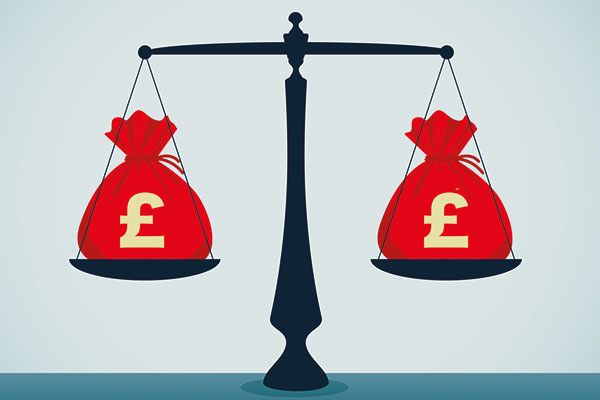Why long-term investors should not worry too much about dividend cuts
Long-term investors should see dividend cuts as an attempt by companies to protect their balance sheet a…
7th May 2020 13:19
by Tom Bailey from interactive investor
Long-term investors should see dividend cuts as an attempt by companies to protect their balance sheet and defend shareholder value.

Income investors have been feeling the pain of big dividend cuts lately. Most notably, the low price in oil has seen Royal Dutch Shell cut its quarterly dividend by two thirds, allowing the company to save roughly £10 billion this year.
Other big cuts or suspensions have included banks and insurance companies, as well as today’s dividend suspension announcement by BT.
However, according to Kevin Murphy and Andrew Williams from the Schroders' value investment team, while investors may not welcome dividend cuts, long-term investors should not be too dismayed.
The macroeconomic threat faced by companies is real and a dividend cut allows them to defend their balance sheets. This is ultimately good for investors in the long term, they argue.
Murphy and Williams say: “As investors who take a long-term view, we support this type of action. We would much rather see a business protect its balance sheet in the face of an economic threat than blindly pursue the maintenance of dividend targets that were set in a completely different environment.
“Making uneconomic decisions to maintain an unsustainable dividend will ultimately destroy shareholder value.”
In the case of Shell, they argue that the move to cut its dividend was the correct one considering the uncertain outlook for oil prices. The cut, the say, “will allow Shell to protect its balance sheet in an uncertain price environment.”
The cut to its dividend will also help Shell invest in its future. The managers argue that the cash freed up will “facilitate the energy transition as Shell increases its exposure to the low-carbon energy sector”.
As long-term investors, they say they would much rather see a business cut or suspend dividends to protect its balance sheet in the face of an economic threat than blindly defend a policy. To latter risks destroying shareholder value in the long term.
Murphy and Williams note that dividend cuts do harm income in the short term and that can be very difficult for retirees and investors reliant on equity income to cover their cost of living.
But for the long-term investor, it is important not to focus too much on the short-term market noise of a cut, they argue. “The overall impact on the intrinsic value of a given business from a dividend cut is extremely marginal.”
This article was originally published in our sister magazine Money Observer, which ceased publication in August 2020.
These articles are provided for information purposes only. Occasionally, an opinion about whether to buy or sell a specific investment may be provided by third parties. The content is not intended to be a personal recommendation to buy or sell any financial instrument or product, or to adopt any investment strategy as it is not provided based on an assessment of your investing knowledge and experience, your financial situation or your investment objectives. The value of your investments, and the income derived from them, may go down as well as up. You may not get back all the money that you invest. The investments referred to in this article may not be suitable for all investors, and if in doubt, an investor should seek advice from a qualified investment adviser.
Full performance can be found on the company or index summary page on the interactive investor website. Simply click on the company's or index name highlighted in the article.